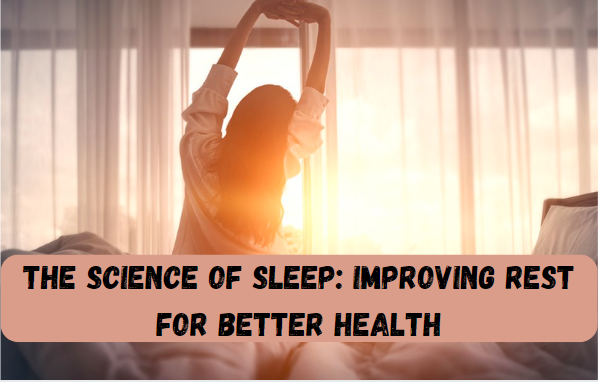In today’s world, the importance of preventive health cannot be overstated. By taking proactive measures to maintain and improve our health, we can significantly reduce the risk of developing chronic diseases and enhance our overall quality of life. This article explores various tips and strategies for achieving long-term health and wellness through preventive care.
Contents
Understanding Preventive Health
Preventive health focuses on avoiding illness and injury before they occur. It encompasses a wide range of practices and lifestyle choices designed to protect and improve health over time. By prioritizing preventive health, individuals can detect potential health issues early, manage risk factors, and maintain overall well-being.
Key Principles:
- Early Detection: Regular screenings and check-ups to identify health issues at an early stage.
- Healthy Lifestyle: Adopting healthy habits, such as a balanced diet and regular exercise, to prevent illness.
- Risk Management: Understanding and managing personal health risks, including family history and environmental factors.
- Vaccination: Staying up-to-date with vaccinations to prevent infectious diseases.
Nutrition and Diet
A healthy diet is the cornerstone of preventive health. Consuming a variety of nutrient-rich foods helps maintain optimal body function, supports the immune system, and reduces the risk of chronic diseases.
Tips for a Healthy Diet:
- Balanced Meals: Include a mix of fruits, vegetables, whole grains, lean proteins, and healthy fats in your diet.
- Portion Control: Be mindful of portion sizes to avoid overeating and maintain a healthy weight.
- Hydration: Drink plenty of water throughout the day to stay hydrated and support bodily functions.
- Limit Processed Foods: Reduce intake of processed foods, sugary snacks, and beverages high in added sugars.
Regular Exercise
Physical activity is essential for maintaining good health and preventing chronic diseases such as heart disease, diabetes, and obesity. Regular exercise also improves mental health, boosts energy levels, and enhances overall well-being.
Exercise Tips:
- Consistency: Aim for at least 150 minutes of moderate-intensity aerobic activity or 75 minutes of vigorous-intensity activity per week.
- Strength Training: Include strength training exercises at least twice a week to build muscle and support bone health.
- Flexibility and Balance: Incorporate activities like yoga or stretching to improve flexibility and balance, reducing the risk of falls and injuries.
- Find Enjoyable Activities: Choose exercises you enjoy to stay motivated and make physical activity a regular part of your routine.
Regular Health Screenings
Regular health screenings and check-ups are vital components of preventive health. These assessments help detect potential health issues early, allowing for timely intervention and treatment.
Important Screenings:
- Blood Pressure: Monitor blood pressure regularly to detect hypertension, a risk factor for heart disease and stroke.
- Cholesterol Levels: Check cholesterol levels to assess the risk of heart disease.
- Blood Sugar: Screen for diabetes or prediabetes by testing blood sugar levels.
- Cancer Screenings: Participate in recommended cancer screenings, such as mammograms, Pap smears, and colonoscopies, based on age and risk factors.
Vaccinations
Vaccinations play a crucial role in preventing infectious diseases and maintaining public health. Staying up-to-date with immunizations protects both individuals and the community.
Key Vaccinations:
- Influenza: Get an annual flu shot to prevent seasonal influenza.
- COVID-19: Follow guidelines for COVID-19 vaccinations and boosters.
- Childhood Vaccines: Ensure children receive all recommended vaccines according to the immunization schedule.
- Travel Vaccines: Receive necessary vaccinations when traveling to regions with specific health risks.
Stress Management
Chronic stress can have a detrimental impact on physical and mental health. Managing stress effectively is essential for overall well-being and preventive health.
Stress Management Techniques:
- Mindfulness and Meditation: Practice mindfulness and meditation to reduce stress and improve emotional resilience.
- Physical Activity: Engage in regular exercise, which can help alleviate stress and improve mood.
- Relaxation Techniques: Incorporate relaxation techniques such as deep breathing, progressive muscle relaxation, or guided imagery.
- Healthy Hobbies: Pursue hobbies and activities that bring joy and relaxation, such as reading, gardening, or playing a musical instrument.
Sleep and Rest
Quality sleep is fundamental to health and well-being. Poor sleep can lead to a range of health issues, including weakened immunity, cognitive impairment, and increased risk of chronic diseases.
Tips for Better Sleep:
- Consistent Schedule: Maintain a regular sleep schedule by going to bed and waking up at the same time each day.
- Sleep Environment: Create a restful sleep environment by keeping the bedroom cool, dark, and quiet.
- Limit Screen Time: Avoid screens, such as smartphones and computers, before bedtime to reduce exposure to blue light.
- Relaxation Routine: Establish a pre-sleep routine, such as reading or taking a warm bath, to signal to your body that it’s time to wind down.
Avoiding Harmful Behaviors
Certain behaviors and habits can significantly impact health and increase the risk of chronic diseases. Avoiding or moderating these behaviors is crucial for preventive health.
Harmful Behaviors to Avoid:
- Smoking: Quit smoking to reduce the risk of lung disease, heart disease, and other serious health conditions.
- Excessive Alcohol Consumption: Limit alcohol intake to moderate levels to avoid liver damage, addiction, and other health issues.
- Recreational Drug Use: Avoid the use of recreational drugs, which can lead to addiction and various health problems.
- Unsafe Practices: Practice safe behaviors, such as wearing seat belts, using sunscreen, and following safety guidelines in various activities.
Building a Support System
A strong support system of family, friends, and healthcare professionals is vital for maintaining preventive health. Social connections and support can enhance emotional well-being, encourage healthy behaviors, and provide assistance during times of need.
Tips for Building Support:
- Stay Connected: Maintain regular communication with family and friends.
- Join Groups: Participate in community groups, clubs, or online forums with shared interests.
- Seek Professional Help: Consult healthcare professionals for regular check-ups, advice, and support.
Conclusion
Preventive health is a proactive approach to achieving long and healthy life. By adopting healthy lifestyle habits, staying up-to-date with health screenings and vaccinations, managing stress, and building a supportive network, individuals can significantly enhance their well-being and reduce the risk of chronic diseases. Prioritizing preventive health empowers individuals to take control of their health, ensuring a higher quality of life for years to come.
























+ There are no comments
Add yours